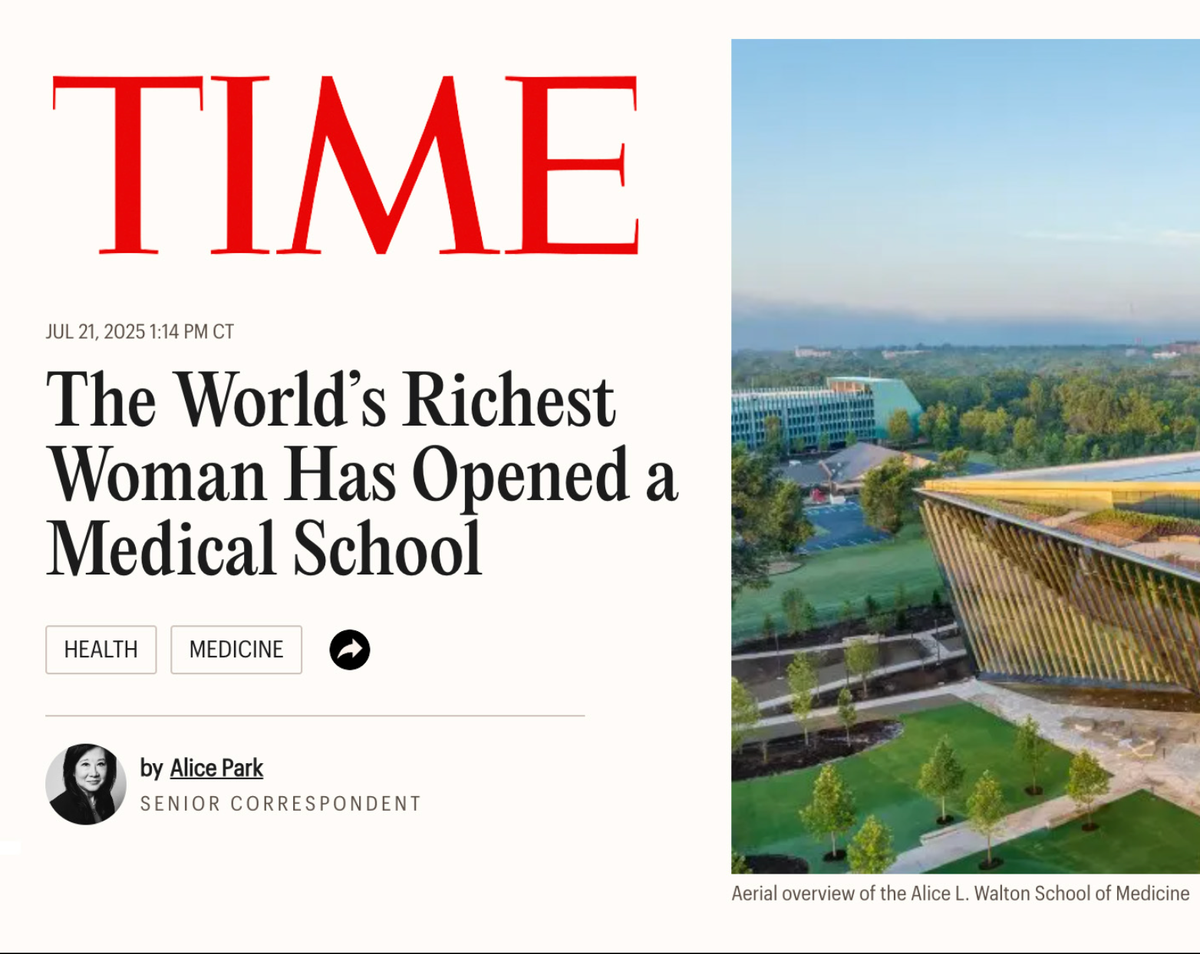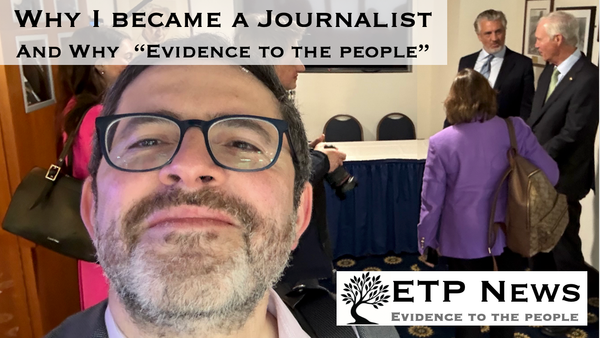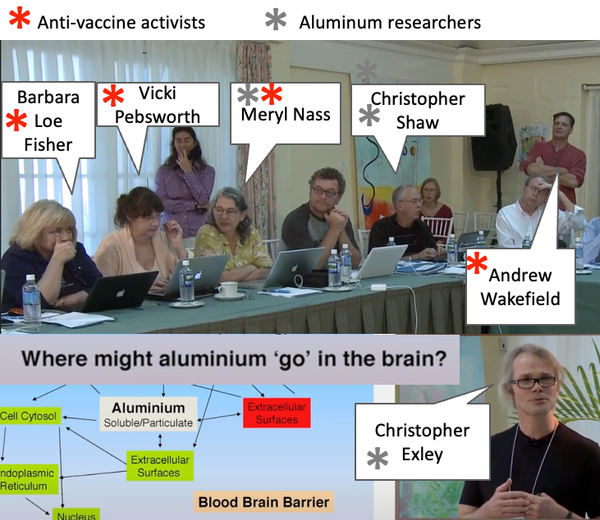No, TIME Magazine, Medicine Does Not Need to be “Rebuilt from Scratch”
"Send your pitch right after lunchtime. By that time, the journalist will have already taken a break but still isn’t focused on afternoon work - which makes this window of time perfect for a compelling pitch."

On July 21, TIME Magazine published a story called “The World’s Richest Woman Has Opened a Medical School.” This story has so much misinformation that it’s worth fact-checking.
But in addition, let’s examine whether this story adheres to journalistic principles of independence and neutrality. After all, TIME “seeks to be the most trusted media company in the world.”
Society of Professional Journalists has a detailed Code of Ethics. In particular, two principles stand out:
- Act Independently
- Refuse gifts, favors, fees, free travel and special treatment, and avoid political and other outside activities that may compromise integrity or impartiality, or may damage credibility.
- Deny favored treatment to advertisers, donors or any other special interests, and resist internal and external pressure to influence coverage.
- Distinguish news from advertising and shun hybrids that blur the lines between the two. Prominently label sponsored content. Native advertising” – also known as “advertorial” or “sponsored content” – is advertising designed to look like genuine journalism.
- Ethical journalism should be accurate and fair.
Alice Park, the author of the story, is a Senior Health Correspondent at TIME. (Neither she nor TIME responded yet to a request for comment.)
It is clear that Park has known Alice Walton - the World's Richest Woman - for a while. Walton lists Park among “the best and brightest minds” she invited to her January 2025 event called “Think Health” at the site of the new medical school in Denville, Arkansas. Its slickly designed opening video has someone say, “Our mission is to implement Alice’s vision.”
Then in May, Park wrote a glowing profile of Walton, one of 2025 TIME100 Health winners.
Now, as Walton opens a new medical school, she likely hired a PR agency. What a PR agency might do can be reconstructed from this advice shared by pr.co:
- Make a media list.
- Build trust with the journalist and editors.” "It’s called media relations for a reason."
- The best days are usually Tuesday or Wednesday. The reason behind this logic is that you should avoid Fridays and weekends because pitches get pushed over for the following week. Therefore, Mondays are not optimal because inboxes tend to be flooded. “Publishers may receive 600 pitches per day.”
- Send your pitch right after lunchtime. By that time, the journalist will have already taken a break but still isn’t focused on afternoon work - which makes this window of time perfect for a compelling pitch.
Now, let’s examine the story.
...Alice Walton wants her school’s graduates to keep patients healthy by practicing something that most doctors today don’t prioritize: preventive medicine and whole-health principles, which involve caring for (and not just treating) the entire person and all of the factors—from their mental health to their living conditions and lifestyle choices—that contribute to wellbeing.
“most doctors today don’t prioritize preventive medicine”
These are reminiscent of MAHA talking points. The MAHA EO states, “America’s healthcare system is largely focused on treating chronic illnesses rather than preventing them.”
In fact it’s the exact opposite. The majority of medical interventions over an individual’s lifetime are aimed at prevention, starting with prenatal vitamins, childhood vaccines, pediatric well-visits, anti-tobacco campaigns, HPV vaccine, pap smears and other cancer screening, blood pressure medications preventing cardiovascular complications, etc.
“Caring for, and not just treating…”
This is a common trope of the wellness movement. And unfortunately, people are starting to believe it. Instead of doctors, they turn to friends, internet and social media - very dangerous.
But the issue is not in education - it’s in care coordination, which was a big priority for the Agency for Healthcare Research and Quality (AHRQ). Tragically, this agency has now been subsumed into another agency and defunded. Under AHRQ was USPSTF, US Preventive Services Task Force, whose evidence-based prevention recommendations every provider knows (or should know) by heart. "These systems are not failing; they are inadequately funded and supported," wrote a former USPSTF Chair.
Park continues.
Those aren’t new ideas, of course, but traditional medicine has only paid lip service to them. Experts have noted that while as much as 80% of medical education focuses on biology, about 60% of premature deaths are due to behavioral factors including lifestyle habits like diet, exercise, and smoking. “I applied to 34 schools, and nowhere else are they doing this,” says Ellie Andrew-Vaughn, who arrived in Bentonville from Ann Arbor, Mich.
traditional medicine has only paid lip service to them - see above. Wrong and dangerous rhetoric that risks to worsen the already low trust in doctors.
80% of medical education focuses on biology, about 60% of premature deaths are due to behavioral factors
The reference Park links to, from 18 years ago, does not talk about education at all, and estimates "premature deaths due to behavioral factors" at 40%, not 60%.
Medicine in the U.S. has long incentivized doctors to respond to people’s symptoms—by ordering many rounds of tests and procedures, to name two cost-driving examples—rather than trying to prevent them in the first place. The doctor-patient conversations that should be at the heart of effective medical care are rare today, and patients are saddled with exorbitant fees that haven’t always contributed to better health outcomes.
This perpetuates another trope, that the high cost of care in the US is due to over-use. In fact it’s due to prices, as an aptly named study, "It's the Prices, Stupid," describes.
Where do you start if you want to recreate health care from scratch? There isn’t a single solution, and any strategy needs to account for not just how doctors are trained and practice medicine, but also the financial incentives that currently drive those practices. In 2019, Walton founded the Heartland Whole Health Institute, located steps from the new medical school, which focuses on research, health advocacy, and education about the policies and financial systems necessary to advance preventive care. With AWSOM, she is turning her attention to finding a better way to train the people who will populate that system: future doctors.
recreate health care from scratch
As mentioned above, this rhetoric is very dangerous.
financial incentives that currently drive those practices
Indeed doctors have many financial incentives - many of them are good things. Here are a few examples. But the pejorative tone of the article only sows mistrust.
If successful, AWSOM could prove that medical school should, and can, be about more than just biology and anatomy. It can also be about what drives a person, and what feeds them—literally, figuratively, spiritually.
A recent study shows that the majority of medical schools have extensive medical humanities programs. So to imply that AWSOM will be first to go "beyond biology and anatomy" is not accurate.
In summary, there is a simple way to fix this article - it just needs to say “advertisement” at the top.




